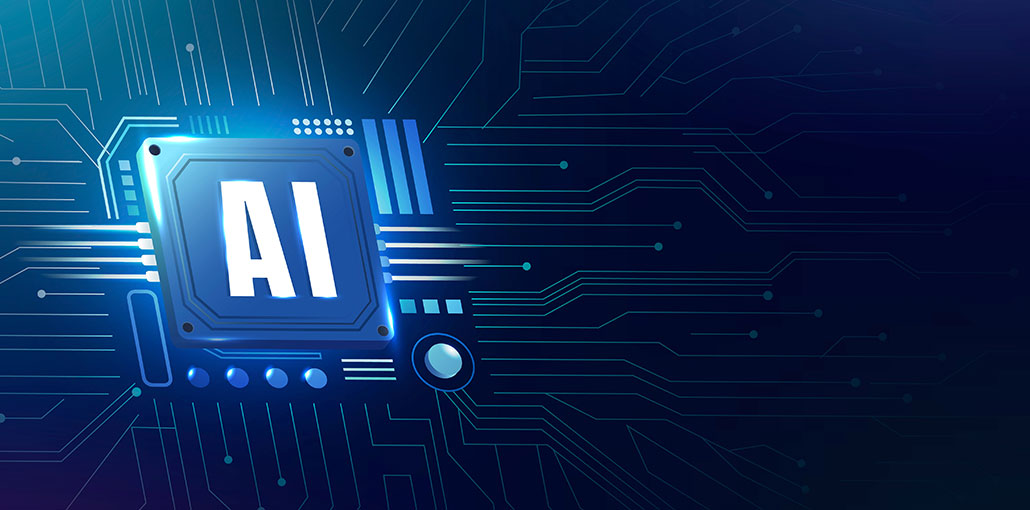Artificial intelligence (AI) is developing at a dizzying rate. In 2023, the value of AI is predicted to rise to $42 billion. It indicates that artificial intelligence will soon be more commonplace than ever, possibly replacing human labor in many areas. According to forecasts, by 2023, artificial intelligence will be the most transformative technology in human history.
Are you interested in taking an AI course that emphasizes hands-on training? AI-related jobs are among the most rewarding and sought-after.
The fact that you could utilize Google to find this page after searching for “artificial intelligence” proves that you have used (and benefited from) AI. You’ve probably used AI if you’ve ever taken an Uber or had your phone auto-correct a misspelled word. Despite its pervasiveness, the definition of artificial intelligence remains elusive. Is there a positive effect on how we live now? The list of possible uses for artificial intelligence is nearly endless, but here are eight that we use often.
However, what exactly is AI?
Artificial intelligence (AI) is the capability of machines to learn and make judgments independently of human programming. Due to its potential to boost production, cut costs, and boost efficiency, it forms an essential aspect of any comprehensive innovation strategy.
One of the key draws of this technology is that it enables previously impossible feats to be accomplished by ordinary individuals. Admit it: you’ve worked with AI before. Perhaps you’re watching movies on Netflix while on the go, searching for them on Google on your phone, or checking Facebook. However, AI isn’t just a set of technical capabilities. Several exciting developments in AI are still to come. You may utilize AI to build cars or track your fitness goals with a fitness tracker app.
Top examples of Artificial Intelligence
The following are a few instances of AI that you may encounter daily.
Google Search
Looking for anything is the internet’s most fundamental function. Furthermore, Google has dominated the market for search engines for the past decade. What about Google Search makes it a powerful and precise web index? You guessed correctly; this is all thanks to AI. When you search online, you employ AI in its basic form.
Over the past three to four years, Google has implemented several AI features to boost a site’s position in search results. AI on Google Search may propose relevant questions and answers and smart search suggestions directly below the search result and even recommend a specific movie segment based on your inquiry. Only recently has AI made it so that Google’s search results rarely require you to go through to page 2. You probably already know the answer, but just in case: Google Search is where most people get their first everyday interaction with artificial intelligence.
Also read: Top 8 Useful Examples Of Artificial Intelligence in Daily Life
Google Lens and OCR
Another Google service, Google Lens, is powered by AI and equipped with impressive technologies for quick and precise optical detection. You may use it to find just about anything by searching image databases. Suppose you point your camera at something like a shoe, plant, animal, or text. In that case, it will immediately identify the type of subject and deliver accurate information about it. AI’s progress in optical recognition is what makes this a reality.
Fall Detection and Car Crash Detection
Newer Apple Watches have a Fall Detection feature that notifies emergency personnel of a heavy fall. It employs AI algorithms, an accelerometer, and gyroscope data to detect a hard fall. AI saves many lives, even if you don’t realize it.
Google Pixel phones now have Car Crash Detection trained on Machine Learning models of real-life car crashes. If the phone detects a car crash, it communicates the location to your contacts and alerts the response team. It’s safe to claim that AI powers our daily software conveniences and life-saving capabilities.
Smart Cars and Drones
A few years ago, using a completely automatic automobile was a dream. Still, businesses like Tesla have made so much progress that we have a fleet of semi-automatic cars on the road. Smart car and drone manufacturers are the best examples of AI.
Amazon and Walmart are spending considerably on drone delivery initiatives, which will happen sooner than you think. If that seems unlikely, consider that militaries worldwide use drone programs.
You must recognize AI’s impact on our lives with autonomous automobiles and drones. Tesla automobiles demonstrate how AI affects our daily lives. Did you know that all Tesla cars are connected and share what they learn? That means if you had to take an unexpected hard left on a crossroad, all Tesla cars would know how to handle it after being updated. Now that Tesla has fixed its production issues, there are over 500,000 Tesla cars on US roads.
Online Ads Network
The online advertising sector is a significant consumer of AI, employing the technology to monitor user behavior and tailor their marketing messages to our individual preferences. The online advertising industry will fail if it continues to serve users ads with no relevance.
The global digital ad market has surpassed USD 250 billion, with projections of USD 300 billion in 2019. It is primarily due to the success of AI in understanding our interests and showing us adverts. In other words, the next time you go online and see advertisements or product recommendations, know that AI affects your life.
Also read: How AI is Help in Visual Online Branding
Smart Keyboard Apps
Indeed, virtual keyboards aren’t everyone’s cup of tea. However, they’ve become much more user-friendly, making typing easier and faster. The introduction of AI likely sparked them into their systems. The smart keyboard apps monitor the user’s writing pattern and suggest words and emojis. As a result, using a touchscreen to input text is far more efficient and practical. Also, AI is quite helpful in locating typos and other forms of spelling errors.
Machine learning has been evolving in the HR and recruitment spheres to minimize selection bias and improve career match-making based on a subset of information given by multiple candidates. Companies like Lensa for example are taking this a notch further by focusing on data extraction of an applicant and using real-time AI to help allocate the best matching skills with the most suitable recruiters. Lensa not only focuses on skills but individual preferences and job seeker desires as important data points to improve recruiter satisfaction through enthusiastic applicants looking for their dream jobs.
Concluding text
As a result of AI, people can improve their productivity and quality of life. We shouldn’t see that as a rivalry but as something to be appreciated. Simplilearn online learning platform helps anyone who wants to expand their knowledge of or start a career in artificial intelligence.










Leave a comment